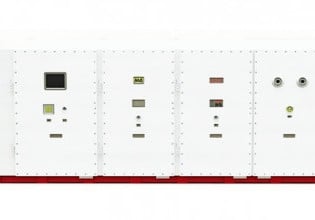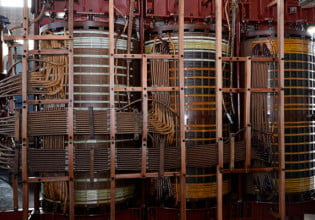Texas Instruments Debuts Several New UPS Families
Texas Instruments Inc. (TI, Dallas, TX) announced several new families of LDO linear regulators. TI believes that one of these new LDO families, the TPS791xx/TPS792xx, will enable wireless manufacturers to meet radio frequency specifications with minimal noise and low power consumption. Two other new families of LDOs, the TPS71533 and TPS797xx families, target battery management applications and systems based on low-current microcontrollers.
TI's TPS791xx/TPS792xx LDOs have output noise characteristics rated at 27µV. TI claims that these devices provide a high degree of accuracy in operation, while a high power supply rejection ratio, measuring 75 decibels at 10kHz, helps block system noise in communications equipment. A proprietary BiCMOS process provides a low quiescent current and a dropout voltage of 50mV under a full 100mA load. TI's new TPS791/792 LDOs are claimed to have a quick response to wake-up calls and a startup time of 50µs. This family's regulators are stable when used with ceramic capacitors. These LDOs are suitable for use in applications such as wireless phones, Bluetooth, PLL, modems and pagers, wireless local-area and home networks, and other portable communications equipment.
The TPS71533 family of LDOs from TI is optimized for powering integrated circuits in battery-management applications. With an output current of 50mA, the device features an input voltage range up to 24V for protection during charging cycles. It has a quiescent current of 3µA and is offered in the SC70 surface-mount package.
The new TPS797xx LDO family is designed to save both power and space in systems based on low-current microcontrollers. The family features a typical quiescent current of 1.3µA at its full 10mA output rating, minimizing current drain in electronic meters and gauges, hand-held instruments, and similar applications.
Some of TI's new LDO regulators are currently available. The rest will be available by June 2001 at prices between $0.37 and $0.50 each, in 1,000-piece quantities.






